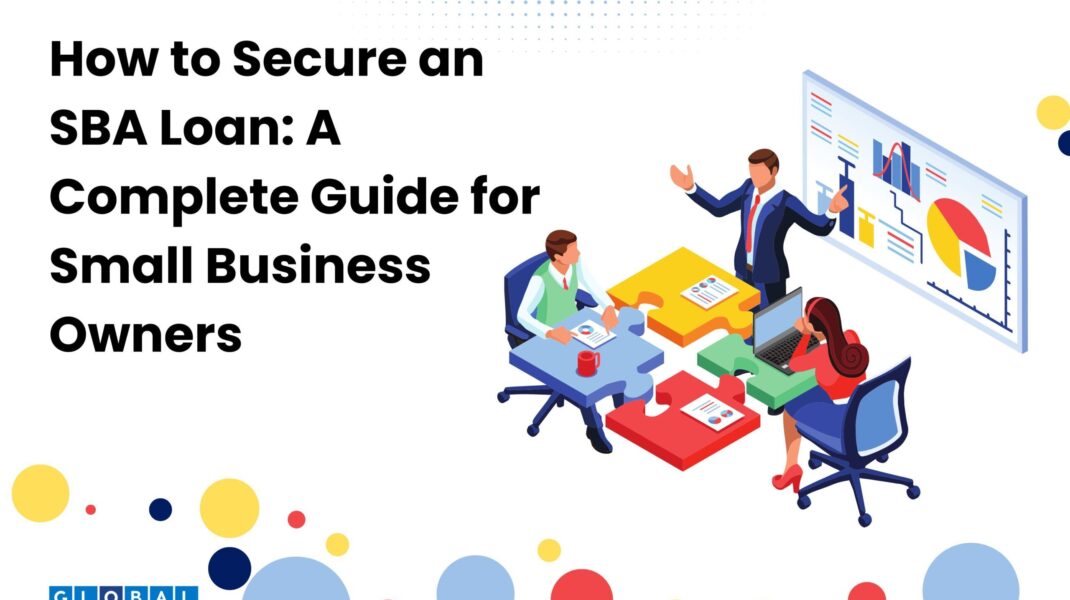How to Secure an SBA Loan: A Complete Guide for Small Business Owners

If you’re a small business owner looking for financing options, an SBA loan can be a great choice. SBA loans are guaranteed by the Small Business Administration and offer lower interest rates and longer repayment terms than traditional bank loans. In this article, we’ll cover everything you need to know to secure an SBA loan, including eligibility requirements, the application process, and tips for getting approved.
What is an SBA loan?
An SBA loan is a type of loan that is guaranteed by the Small Business Administration. This guarantee allows lenders to offer lower interest rates and longer repayment terms to small business owners. SBA loans can be used for a variety of purposes, including working capital, equipment purchases, and real estate.
Eligibility requirements for an SBA loan
To qualify for this loan, you must meet certain eligibility requirements. These requirements include:
Business size and type
Your business must be considered a small business by SBA standards. This typically means having fewer than 500 employees, although there are some exceptions for certain industries. Additionally, your business must be a for-profit business that operates in the United States.
Credit score and history
Most SBA lenders require a minimum credit score of 620, although some may require a higher score. Additionally, your credit history will be taken into account, including any bankruptcies or foreclosures.
Collateral and personal guarantees
Some SBA loans require collateral to secure the loan, such as equipment or real estate. Additionally, some loans may require a personal guarantee from the business owner.
Types of SBA loans
There are several types of SBA loans available to small business owners, including:
7(a) loans
7(a) loans are the most common type of SBA loan. They can be used for a variety of purposes, including working capital, equipment purchases, and real estate. Loan amounts can range from $50,000 to $5 million, with repayment terms of up to 25 years.
CDC/504 loans
CDC/504 loans are designed for businesses looking to purchase real estate or equipment. Loan amounts can range from $125,000 to $5 million, with repayment terms of up to 25 years.
Microloans
Microloans are smaller loans that are typically used for working capital or inventory purchases. Loan amounts can range from $500 to $50,000, with repayment terms of up to 6 years.
Disaster loans
Disaster loans are available to businesses that have been affected by a natural disaster. Loan amounts can range from $25,000 to $2 million, with repayment terms of up to 30 years.

a person is explaining about ERTC
Application process for an SBA loan
Applying for an loan can be a lengthy process, but the rewards can be worth it. Here’s what you need to know about the application process:
Gather necessary documents
Before you apply for a loan, you’ll need to gather several documents, including financial statements, tax returns, and a business plan. Make sure you have all of the necessary documents ready before you start the application process.
Choose a lender
When applying for an SBA loan, it’s essential to choose the right lender for your business. Global Connect Pro Financial can help you in securing the funds you need to grow your business. We have a team of experts to guide you through the application process and help you make the best decisions for your business. With our support, you can have peace of mind knowing that you’re partnering with a trusted lender who has your best interests in mind.
Fill out the application
The SBA loan application is lengthy and requires a lot of information about your business and its financials. Take your time filling out the application and make sure all of the information is accurate.
Wait for approval
Once you’ve submitted your application, it can take several weeks to hear back from the lender. Be patient and be prepared to provide additional information or answer questions if necessary.
Tips for getting approved for an SBA loan
While there is no guarantee that you will be approved for an this loan, there are several things you can do to improve your chances:
Improve your credit score
If your credit score is below the minimum required by the lender, take steps to improve it before applying for the loan. This may include paying down debt, making on-time payments, and disputing any errors on your credit report.
Prepare a solid business plan
Your business plan is an important part of the application process. Make sure it is thorough and includes financial projections and a description of your business.
Have collateral available
If the lender requires collateral to secure the loan, make sure you have something to offer. This could include real estate, equipment, or inventory.
Be patient
The loan process can be lengthy, so be patient and be prepared to provide additional information or answer questions if necessary.
Conclusion
Securing an SBA loan can be a great way for small business owners to obtain financing at a lower interest rate and with longer repayment terms than traditional bank loans. By understanding the eligibility requirements, types of loans available, and application process, you can increase your chances of getting approved for an SBA loan and growing your business.
FAQs
Q.1 What is the interest rate on an SBA loan?
A. The interest rate on an SBA loan varies depending on the type of loan and the lender, but is generally lower than traditional bank loans.
Q.2 How long does it take to get approved for an SBA loan?
A. It can take several weeks or even months to get approved for an SBA loan, so be prepared to be patient.
Q.3 What is the maximum loan amount for an SBA loan?
A. The maximum loan amount for an SBA loan varies depending on the type of loan but can be as high as $20 million.
Q.4 Can I use an SBA loan to start a business?
A. Yes, SBA loans can be used to start a business or to help an existing business grow.
Q.5 What happens if I default on an SBA loan?
A. If you default on an SBA loan, the lender may take legal action to recover the funds, including seizing collateral or taking legal action against the business owner.
Check our accounting services


Write a reply or comment
You must be logged in to post a comment.